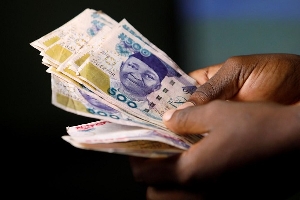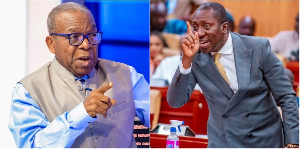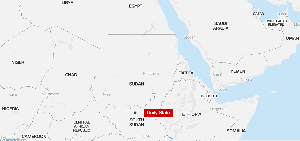The naira is on a roll, but struggling Nigerians are still waiting to reap the benefits.
The currency of Africa’s biggest oil producer has jumped almost 40% against the dollar since mid-March, making it the world’s best performer. Those gains have largely been driven by an increase in demand for the nation’s assets after the central bank ramped up interest rates as part of a bid to defend the currency.
Inflation meanwhile accelerated to an annual 33.2% in March, nearly a three-decade high. Food costs rose even more steeply, exacerbating pressure on households in a country where about 40% of the population of more than 200 million live in extreme poverty.
The data was collected prior to the naira partially reversing a steep depreciation that ensued after two devaluations.
While the rebound should help contain inflation going forward, the country is facing other cost pressures, including a threefold increase in electricity prices in some urban areas from this month. The government is talking to labor unions about raising the minimum wage from May.
Production of oil, which generates the bulk of Nigeria’s foreign-exchange earnings and government revenue, has been declining and unsold crude inventory levels have been rising. That’s left the country unable to fully benefit from higher international crude prices.
Even if inflation does ease, the naira is still worth substantially less than what it was when President Bola Tinubu took office in May last year and set about overhauling the foreign-exchange regime and cutting fuel subsidies. That implies a reversal of a decline in living standards isn’t imminent.
There is hope of better times ahead — Goldman Sachs sees the naira rally persisting and the massive Dangote oil refinery is finally starting to produce fuel, reducing the need for imports.
For now, Tinubu’s costly reforms are testing Nigerians’ patience.
Business News of Tuesday, 16 April 2024
Source: bloomberg.com

















